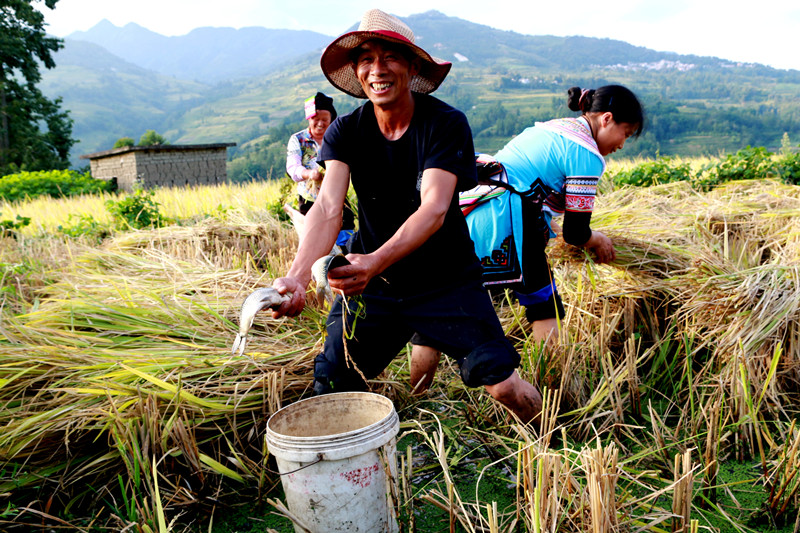Rural residents in Yunnan see income surge

According to China’s National Bureau of Statistics (NBS), during the 13th Five-Year Plan, the per capita disposable income of rural residents in Yunnan province increased from 8,242 yuan (about 1,267 US dollars) in 2015 to 12,842 yuan (about 1,974 US dollars) in 2020, with an annual growth rate of 9.3%, which is 0.9% higher than the national average.
Since 2016, in order to develop its economy and help rural residents shake off poverty, the province has been keen on developing a series of industries with Yunnan characteristics, encompassing modern plateau agriculture, tourism, consumer goods manufacturing and so forth, which can substantially help diversify and raise the income of rural residents.
As people’s incomes increase, their consumption ability has also been raised significantly. In 2020, the annual per capita expenditure of rural residents in Yunnan reached 11,069 yuan (approximately 1,695 US dollars) while this figure was only 6,830 yuan (around 1,046 US dollars) in 2015.
In other words, Yunnan remained a growth rate of 10.1% regarding rural people’s per capita expenditure during the 13th Five Year Plan, which is 1.8% higher than the national level.
Over the past 5 years, rural residents’ food and clothing consumption have also seen a soar, as they begin to pursue a life with higher quality. People’s choices of food have become more diverse, and green and healthy food are accepting by an increasing number of people.

Meanwhile, people’s preference has changed when it comes to clothes. Dresses with cool designs and even personalized elements seem to be more popular among young consumers.
In addition, tobacco and alcohol sales in rural areas of Yunnan have also seen growths.
Between 2015 and 2020, Yunnan launched a systematic poverty alleviation campaign in which tens of thousands of old residences as well as toilets and other public infrastructures were able to be renovated.
As of 2020, all rural residents — the same as their urban counterparts — have been involved in China’s national medical system.
As the livelihood improves, people in rural areas in Yunnan have eventually started living a life of Xiaokang.
Reporting by Hu Xiaorong (Yunnan Daily); trans-editing by Zhang Shuyu and Wang Jingzhong